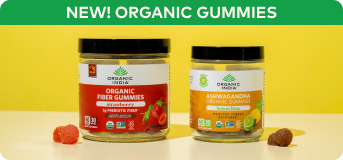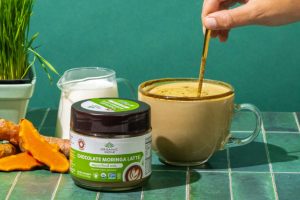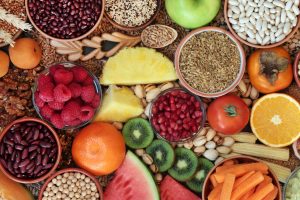

Section

Back
Note: This content is for informational purposes only. These statements have not been evaluated by the Food and Drug Administration. Any products mentioned are not intended to diagnose, treat, cure, or prevent any disease.
All living things, including humans, are governed by natural processes. Regardless of the chemicals we may ingest from time to time in our foods — especially processed foods — our bodies crave natural nutrients. And while scientists have found ways to chemically mimic some nutrients, many realize that the best sources of essential nutrients are found where they’ve always existed — in nature’s foods and beverages.
What are Functional Foods?
An easy way to think of “functional foods” is to consider the concept of foods and drinks as medicine — nothing new. Foods, herbs, and drinks have been used for their healing properties since ancient times. We drink a glass of orange juice for a dose of Vitamin C, or reach for a handful of nuts for some quick protein. These are examples of using foods functionally.
The best sources of essential nutrients are found where they’ve always existed — in nature’s foods and beverages.
But orange juice for Vitamin C and nuts for protein are just the basics. Mother Nature is wonderfully complex and intelligent in her bounty. While it’s possible to buy a bottle of Vitamin C at your local drugstore, if you eat an orange, you’re getting a cornucopia of additional nutrients: thiamine, which can benefit your nervous and digestive systems; folate, which can produce red and white blood cells and convert carbohydrates into energy; potassium, which can regulate blood pressure and reduce the risk of cardiovascular disease; as well as so many other nutrients, like antioxidants, phenolics, and citric acid. All of these exist in an integrated complex within the food.
Natural, functional foods serve as complete health kits, delivering the body a host of nutrients to benefit and regulate its natural functions, right down to the cellular level.
Functional Foods in Ayurveda
Since the beginnings of Ayurvedic medicine 7,000 years ago, practitioners have studied the effects of natural foods, herbs, and drinks on the human body, believing that, when used properly, they maintain, benefit, and restore not only physical health, but the well-being of the mind and spirit.
In Ayurvedic philosophy, all people express three doshas, or biological energies, that regulate all physical and mental processes — pitta, vata, and kapha — each individual is dominated by one of them. It is believed that the key to maintaining good health is continuously pursuing a particular balance between the doshas, which often means calming the dominant one.
But how does one do this? Doshas are heavily affected by lifestyle, emotions, spiritual disposition, and dietary habits — when a dosha is out of balance, an Ayurvedic doctor may suggest various foods, drinks, and/or herbal remedies for restoration. For example, if a patient is experiencing acne, inflammation, and stomach problems, his or her Ayurvedic practitioner may diagnose an excess of pitta in the body. A major part of the remedy may be to eat foods with a “cooling” quality, such as cucumbers or sweet fruits, as well as to consume tonics that have the same quality, such as amla, bacopa, gotu kola, or triphala.
Functional Teas
When people catch a common cold, they’re often told to drink tea because liquids, in general, are helpful in flushing toxins from the body, or because a hot beverage helps break up congestion or relieve a chill. Teas are often overlooked because of their simplicity, yet they may actually serve as functional drinks, rich in antioxidants, polyphenols, and other nutrients.
Herbal teas may also provide health benefits, delivering a concentration of rich nutrients without caffeine. An herbal tea with rose hips, for example, is believed to defend the immune system. Ayurveda embraced these teas long before scientists discovered that they contain polyphenols and galactolipids that help with inflammation.
Food scientist Clare Hasler wrote, “Functional foods represent one of the most intensively investigated and widely promoted areas in the food and nutrition sciences today. However, it must be emphasized that these foods and ingredients are not magic bullets or panaceas for poor health habits. Diet is only one aspect of a comprehensive approach to good health.”
The philosophy behind functional foods and beverages is rooted in the understanding that food is our best medicine. Being well, getting well, and feeling well are all a matter of balance of mind, spirit, emotions, and body. Nature’s plants and herbs are the original and best functional foods, with the body instinctively knowing how to use them for health, healing, and prevention of illness.






